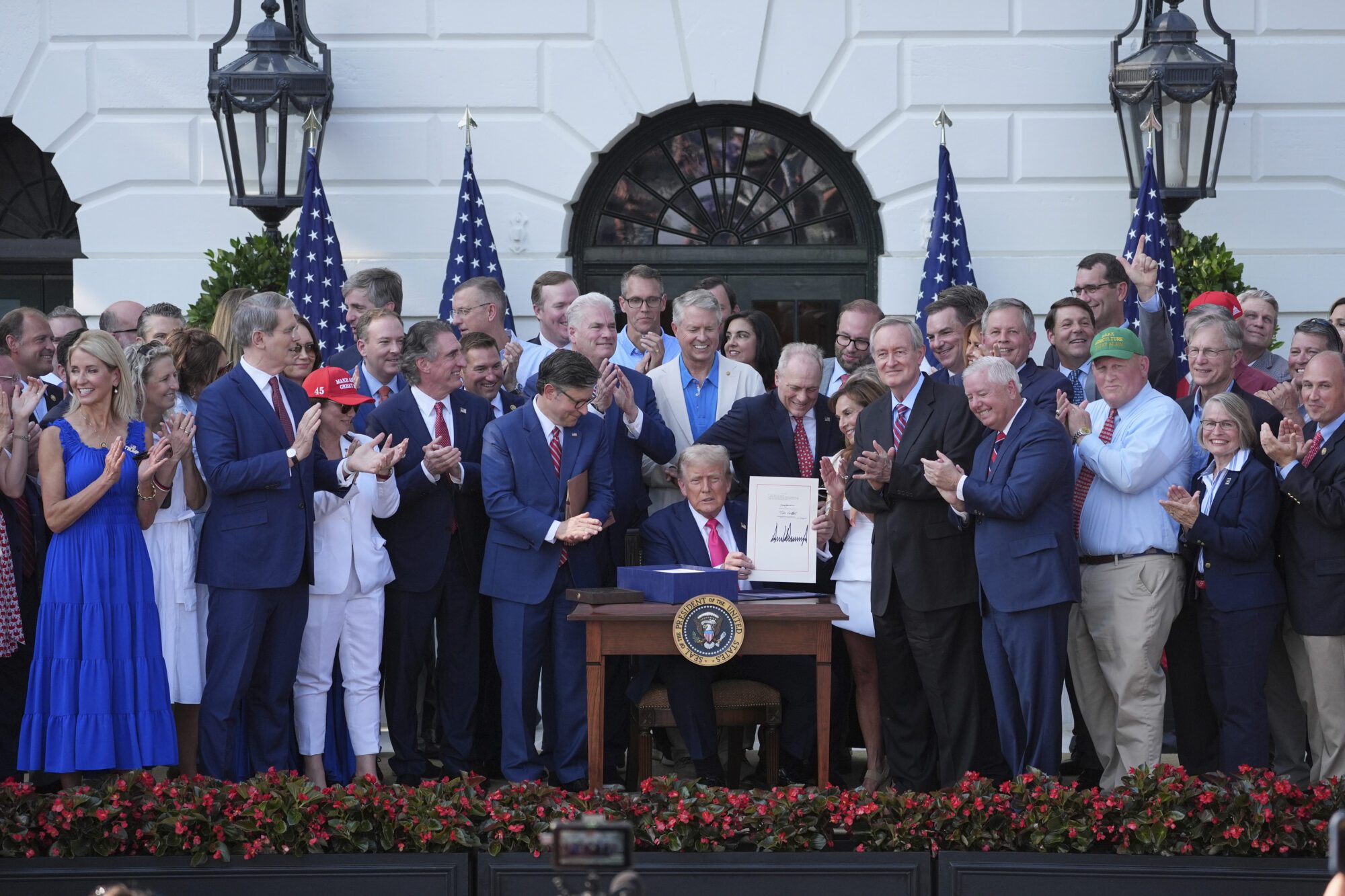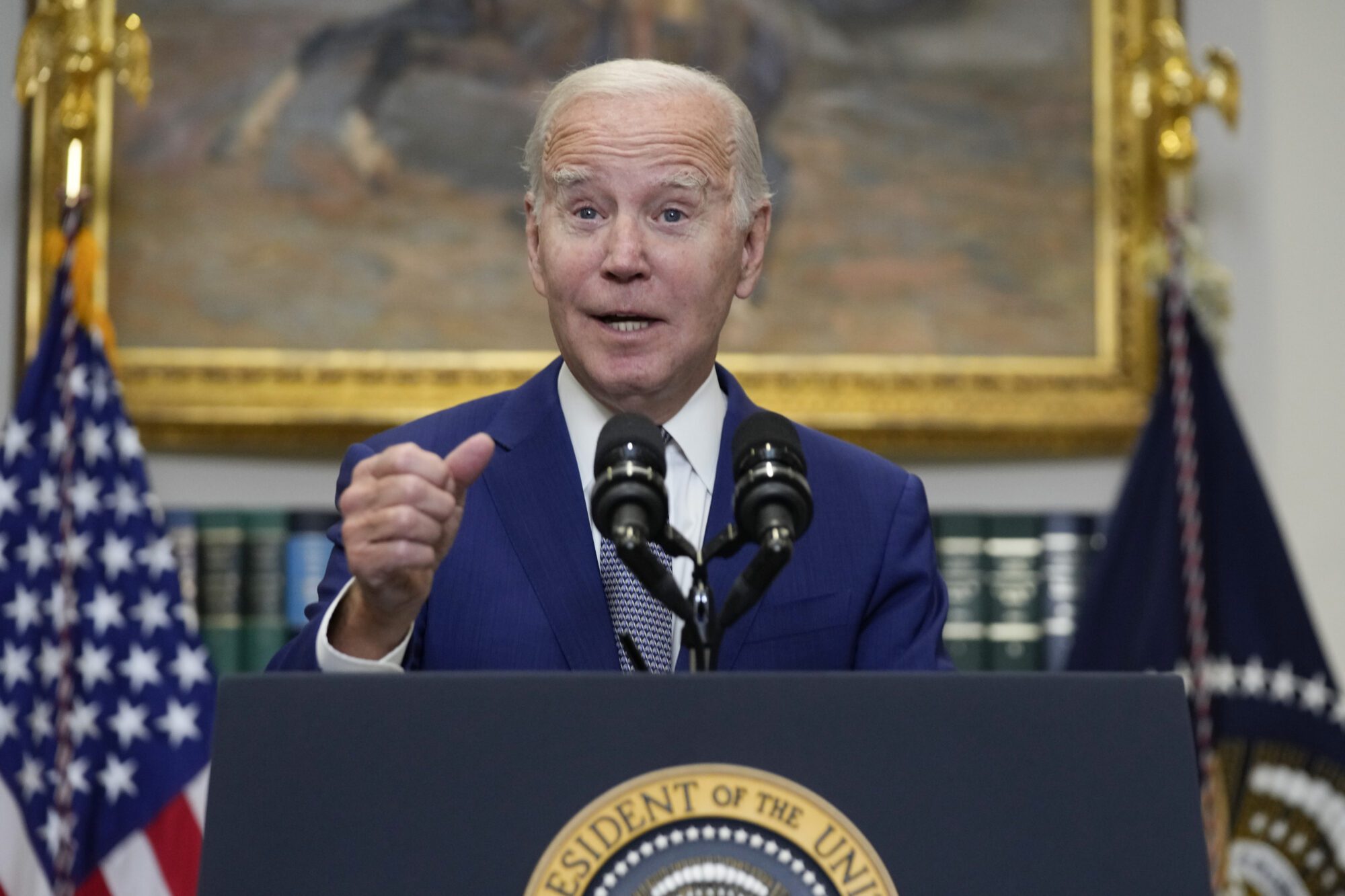RELEASE
Americans for Prosperity – 2017 Legislative Update
As the next deadline comes upon us tomorrow, we thought we’d provide an update on legislation we are monitoring.
The first section below contains legislation we view as being high priority and is divided into favorable and unfavorable categories. Beneath that are more expansive lists of legislation we find favorable and unfavorable.
These assessments are made based on the current forms of these bills and can change with amendments. For each bill listed we have identified at least one of four policy categories from our Mississippi Growth Project website (taxes, spending, regulation, and education).
Priorities
Favorable: HB 974 (Personnel Board Exemption), HB 1076 (Prosperity Zones), HB 1090/SB 2330 (Medicaid Fraud Prevention), HB 1109 (Procurement Reform), HB 1425 (Occupational Licensing Reform), SB 2632 (Prohibition on Taxpayer-Funded Contract Lobbyists).
Unfavorable: HB 480 (Internet Sales Tax), HB 711 (Mississippi Film Incentive).
Additional descriptions of these bills found below.
Favorable
HB 131 – HB 131 authorizes the Department of Revenue to compromise and settle certain tax liabilities. The bill aims to reduce bureaucracy that might otherwise prohibit satisfactory settlements for both the state and taxpayers. (Taxes).
HB 144 – HB 144 makes the Department of Revenue liable for costs incurred by a taxpayer if the department filed a lien against the taxpayer in error. The bill will help to deter questionable liens and will rightfully restore a taxpayer falsely accused. (Taxes).
HB 411, 1315, 1319, 1320, 1321, 1322, 1447 – Each of these bills reduces the regulatory burdens on the sale of alcohol moving us closer to a free market where Mississippi consumers get to decide for themselves how to spend the money they earn. (Regulation).
HB 481 – Under current law, attorneys are not allowed to tell a jury the actual amount of medical expenses paid by or on behalf of a plaintiff. This leads to information being presented to a jury that often grossly overestimates the damages suffered by the plaintiff in formulating an award. The end result is an invasion of property rights. HB 481 would permit attorneys to accurately represent the amount paid by or on behalf of a plaintiff for medical expenses. (Regulation).
HB 544 – HB 544 would provide a “nontraditional” path to teach for individuals with certain advance degrees, recognizing that there are professionals in our state that are preeminently qualified to teach in certain subject areas and increasing the volume of qualified teachers available for our public schools. This bill would provide for a freer market for educators. (Regulation & Education).
HB 572 – HB 572 authorizes the Department of Finance & Administration to sell identified state-owned property, providing a path to efficiently reduce the size of government. (Spending & Regulation).
HB 722 – HB 722 establishes penalties for theft of cargo that takes into account the value of the cargo. At the heart of economic freedom is a protection of property rights. This bill aims to do that and to ensure that the punishment is commiserate with the property crime. (Regulation).
HB 812 – HB 812 increases transparency and adds important due process protections for property owners subjected to civil asset forfeiture. It represents an important first step in protecting property rights in circumstances involving suspected criminal activity. (Regulation).
HB 843 – HB 843 provides updated notice procedures and state cooperation for landlords looking to evict tenants for non-payment. This bill simplifies existing law and aims to protect the property rights of owners. (Regulation).
HB 938/SB 2645 – HB 938 and SB 2645 both seek to implement a moratorium on the purchase of vehicles by state agencies as a way to reduce costs. (Spending).
HB 974 – HB 974 is an important first step in ensuring that government employment coincides with public need. The bill operates to exempt certain state agencies from personnel board requirements for a three-year period and requires agencies to track and submit salary increases, allowing for greater streamlining and simultaneous accountability. (Spending & Regulation).
HB 996 – HB 996 would allow pharmacies to dispense drugs used to prevent opioid overdose without a prescription. This is a good free-market reform which will increase access to life-saving medication. (Regulation).
HB 1033 – HB 1033 adopts recommendations of the re-entry council to remove barriers to employment for rehabilitated public offenders, increasing the likelihood of hiring and reducing the likelihood of recidivism at a savings to the state. (Spending & Regulation).
HB 1046 – HB 1046 expands options for students with dyslexia and is consistent with AFP Mississippi’s student-centered approach in education. (Regulation & Education).
HB 1076 – HB 1076 reduces regulatory burdens and taxes in Mississippi’s Growth and Prosperity Districts to help spur economic growth. If passed, these areas will have greater economic freedom. (Regulation).
HB 1090/SB 2330 – HB 1090 & SB 2330 both require eligibility verification for programs like Medicaid in an effort to reduce fraud and restrain some of the primary drivers of budget growth in Mississippi. (Spending).
HB 1106/SB 2635 – HB 1106 & SB 2635 would require government purchasing entities to allow for electronic bidding from vendors, increasing efficiency and security in bidding. (Spending & Regulation).
HB 1109 – HB 1109 establishes new procurement procedures, changing the method for advertising and accepting bids for certain state services to include the use of reverse auction bidding for certain types of contracts. While AFP Mississippi would have preferred some of exemptions contained in the bill not exist, HB 1109 is a positive first step to ensuring that Mississippi taxpayers are not overpaying for services provided by private vendors. (Spending & Regulation).
HB 1116 – HB 1116 requires that notice of special meetings be posted on the website of the public body hosting the meeting, thereby increasing transparency surrounding decisions that could come at a cost to citizens. (Spending & Regulation).
HB 1127 – HB 1127 requires that minutes from a public body’s meeting be posted on their website within a certain time period following the meeting, thereby increasing transparency surrounding decisions that could come at a cost to citizens. (Spending & Regulation).
HB 1224 – HB 1224 exempts “A” and “B” accountability rated school districts from certain state requirements. This bill returns some local control to those districts that are performing well and is consistent with AFP Mississippi’s student-centered approach to education that includes more local decision-making. (Education).
HB 1227 – HB 1227 eliminates a statewide teacher evaluation system and vests authority in local districts to adopt their own teacher evaluation system. This is consistent with AFP Mississippi’s student-centered approach to education that includes more local decision-making. (Education).
HB 1296 – HB 1296 seeks to increase transparency around education spending by requiring school districts to post spending on an online searchable website. Given the overwhelming percentage of funding that comes from the state, it makes sense that it would monitor how funds are being spent. (Spending & Education).
HB 1330/SB 2572 – HB 1330 and SB 2572 eliminates boards and commissions that are not meeting, thereby reducing the size of government and the scope of the regulatory state. (Spending & Regulation).
HB 1425 – HB 1425 would provide active supervision to executive branch boards that regulate private sector professions and are controlled by active market participants. The process is designed to ensure that these boards are not hurting competition and are using the least restrictive regulation possible to satisfy a legitimate public purpose. (Regulation).
HB 1426 – HB 1426 protects property rights by ensuring that plaintiffs in asbestos lawsuits are not compensated multiple times for the same injury. (Regulation).
SB 2110 – SB 2110 clarifies that a franchisor is not to be considered an employer of its franchisee unless the relationship is reduced to writing. This is an important distinction in contract law for the protection of private property and the fair adjudication of claims. (Regulation).
SB 2249 – SB 2249 provides for expedited small claims court procedures aimed at making the small claims process less onerous, which should, in turn, make it easier and less costly to resolve property disputes. (Regulation).
SB 2274 – SB 2274 authorizes MDA to dispose of property from a failed economic development project, hopefully recouping a portion of the loss incurred on taxpayers’ behalf. (Spending & Regulation).
SB 2275 – SB 2275 provides for annual reports from state agencies to be published on the Transparency Mississippi website. This has the potential of holding down spending if the public pays attention to how their tax dollars are being used. (Spending).
SB 2299 – SB 2299 provides for additional exemptions for occupational licensing laws, meaning more Mississippians will have freedom to work without burdensome regulations that serve as barriers to entry and drive up consumer costs. (Regulation).
SB 2327 –SB 2327 serves to simplify business filing requirements with the Secretary of State, reducing the burden on entrepreneurs. (Regulation).
SB 2345 – SB 2345 removes certain advertisement prohibitions from alcoholic beverages, thereby expanding economic freedom. (Regulation).
SB 2350 – SB 2350 simplifies regulations on corporate business filings. (Regulation).
SB 2384 – SB 2384 requires advertisement of bids on the DFA procurement portal, increasing transparency that hopefully results in more judicious spending. (Spending).
SB 2428 – SB 2428 excludes from gross income reported on Mississippi taxes dividend income for which a tax under the laws of another state was paid. The aim is to prevent double taxation of income. (Taxes).
SB 2610 – SB 2610 serves to expand a medical trial at UMMC using CBD oil, meaning more patients might have access to health care. (Regulation).
SB 2625 – SB 2625 refines last year’s Budget Transparency Act bill (SB 2362) to address technical concerns identified following passage. AFP Mississippi remains supportive of the concept of placing the Legislature in a position to be held accountable for government spending. (Spending).
SB 2632 – SB 2632 prohibits the use of state funds on contract lobbyists. Taxpayer dollars should not be used by public agencies to lobby the Legislature for more taxpayer dollars. (Spending & Regulation).
SB 2642 – SB 2642 requires state agency budget information to be submitted to legislative budget office and posted on legislative budget office website. The bill aims to increase transparency, which hopefully will have the effect of reducing spending. (Spending).
SB 2669 – SB 2669 revises a height restriction on billboards currently enforced by MDOT, providing more freedom to advertisers. (Regulation).
Unfavorable
HB 464 – HB 464 extends the State Board of Cosmetology. AFP Mississippi opposes occupational licensure regulations that make it harder for people to work absent a compelling public interest and no less burdensome path to satisfy that interest. Too often these boards and licenses serve as a barrier to entry for entrepreneurs protecting existing businesses from competition and driving up consumer costs. The passage of HB 1425 would go a long way in ensuring that the rules being promulgated by boards have a legitimate public purpose and are not being used to discourage competition. (Regulation).
HB 480 – Much has been written about the internet sales tax over the last few months. AFP opposes the internet sales tax contained in HB 480 for three reasons. First, the bill is unconstitutional under existing U.S. Supreme Court precedent, meaning we are inviting costly litigation by passing it. Second, if every state follows Mississippi with this kind of bill, it will introduce a massive web of regulations that hurt Mississippi businesses. Ultimately, this kind of commerce (interstate commerce) is under the authority of Congress to address. Third, HB 480 will increase the amount of revenue collected by the state from Mississippi taxpayers. This means Mississippians will have less to spend on their families and in their communities and that government will grow. (Taxes, Spending & Regulation).
HB 709/SB 2474 – HB 709 and SB 2474 extend the MS Business Finance Corporation, which redistributes taxpayer dollars to privately held companies. It is not the role or function of government to invest taxpayer monies in the private sector. (Taxes & Spending).
HB 711 – HB 711 extends the “rebate” to out-of-state film and commercial producers under the Mississippi Motion Picture Incentive Act. Using taxpayer dollars to make movies and commercials is not a core function of government. Moreover, the state loses money on this program every year. At a time when many politicians are seeking additional tax revenue, it is offensive that we would continue spending on something like movie production. (Spending).
HB 909 – HB 909 requires the state health insurance plan to cover certain annual examinations which have not been deemed medically necessary and which will increase the cost of the state health insurance plan on taxpayers. (Taxes & Spending).
HB 926 – HB 926 extends to public universities the ability to create new “health care collaboratives,” that could be anti-competitive or include the establishment of monopolies, putting private sector competitors at a disadvantage. The bill also exempts those participating from certain ethics obligations and could lead to more public debt. (Taxes, Spending & Regulation).
HB 1185 – HB 1185 seeks to increase “public-private” partnerships in Mississippi. AFP Mississippi opposes the redistribution of taxpayer dollars to private entities. These attempts at “investing” state dollars have proven perilous, serve to distort the free market and carry with them the potential for cronyism. (Spending & Regulation).
HB 1412 – HB 1412 creates a preference for veteran-0wned small businesses in seeking public contracts, allowing up to a 10% premium above the next lowest bidder. While we all want to honor our veterans, this bill could dramatically increase government spending and might lead to existing businesses bringing on “veteran partners” simply to drive up their bids.
HB 1451 – HB 1451 increases the cost of marriage certificates in Mississippi at a time when the state is attempting to simultaneously encourage marriages and reduce single-parent households. (Taxes).
SB 2017 – SB 2017 extends the licensing requirements on home inspectors. AFP Mississippi opposes occupational licensure regulations that make it harder for people to work absent a compelling public interest and no less burdensome path to satisfy that interest. Too often these boards and licenses serve as a barrier to entry for entrepreneurs protecting existing businesses from competition and driving up consumer costs. The passage of HB 1425 would go a long way in ensuring that the rules being promulgated by boards have a legitimate public purpose and are not being used to discourage competition. (Regulation).
SB 2350 – SB 2350 simplifies regulations on corporate business filings. (Regulation).
SB 2386 – SB 2386 extends the licensing requirements for businesses providing funeral services. AFP Mississippi opposes occupational licensure regulations that make it harder for people to work absent a compelling public interest and no less burdensome path to satisfy that interest. Too often these boards and licenses serve as a barrier to entry for entrepreneurs protecting existing businesses from competition and driving up consumer costs. The passage of HB 1425 would go a long way in ensuring that the rules being promulgated by boards have a legitimate public purpose and are not being used to discourage competition. (Regulation).
SB 2445 – SB 2445 authorizes the Department of Revenue to develop a system to identify assets held in banks by those with tax liens. This has the potential for abuse, including invasion of privacy and substantial burdens being placed on banking institutions. (Regulation).
SB 2855 – SB 2855 expands the licensing requirements for residential builders and remodelers. AFP Mississippi opposes occupational licensure regulations that make it harder for people to work absent a compelling public interest and no less burdensome path to satisfy that interest. Too often these boards and licenses serve as a barrier to entry for entrepreneurs protecting existing businesses from competition and driving up consumer costs. The passage of HB 1425 would go a long way in ensuring that the rules being promulgated by boards have a legitimate public purpose and are not being used to discourage competition. (Regulation).
In addition to the items identified above, AFP Mississippi is monitoring bond bills to determine if the Legislature is engaged in responsible borrowing, which takes into account both the amount and the items for which we are obligated Mississippi tax payers. We are particularly interested in whether debt is growing at a pace faster than inflation plus population growth, a conservative metric for both spending and debt, and whether the items being bonded are for core government functions.
We are also simultaneously monitoring the proposal of a number of tax credits and exemptions. The state should be focused on developing tax policy that keeps rates low, that is broad-based and that is behavior neutral instead of providing individual incentives to individual companies or industries.
2/27/17







